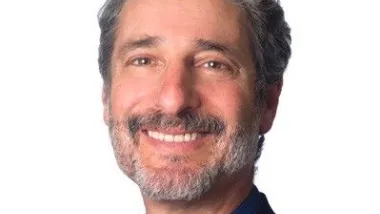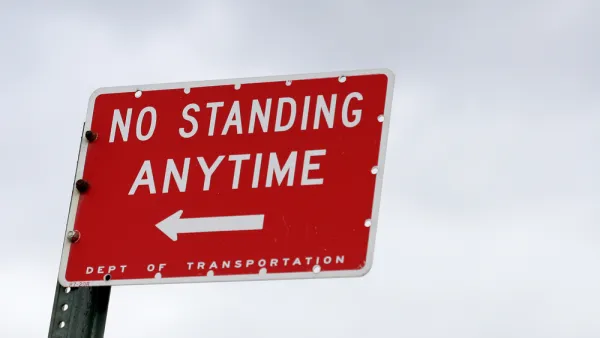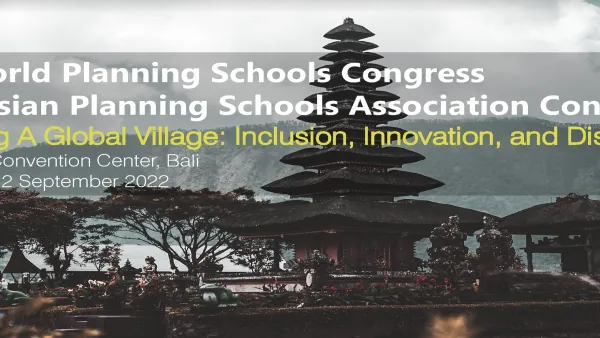Each January Washington DC hosts a huge gathering of the transportation planning tribe. What do we do? Read about it here.
Greetings from Washington DC where this week I attend the Transportation Research Board (TRB) Annual Meeting, held here each January. It is an exciting, productive, and often stressful event; a tribal gathering that attracts more than 10,000 transportation professionals from around the world. This is my 19th year! Here are some personal highlights.
============================================
Are you a member of the Planning Tribe? Take this simple test to find out:
- Are you a professional do-gooder?
- Does your work involve integrating diverse disiplines and issues?
- Do you use both qualitative and quantitative analysis?
- Are you, at least sometimes, frustrated that the rational solutions that you propose are rejected by the people who could benefit?
If your answer to these questions is "yes," then you are one of us!
============================================
Thursday & Friday
While preparing to leave my main computer failed. Disaster! Two days of frustration and distraction as I struggled to finalize my presentations and meet consulting project deadlines.
Saturday
Departed early in the morning. Jet had mechanical problems. Flight canceled. More frustration and stress! Revised routing had tight connections, including a sprint through the Chicago airport. Arrived late to Washington DC. Checked luggage lost. Got to my hotel after midnight.
Sunday
I gave a presentation at a workshop on autonomous (self-driving) cars, based on my study, Autonomous Vehicle Implementation Projections. This lead to a debate with advocates who only recognize the advantages and ignore likely problems of automated driving, such as new types of crashes and increased vehicle travel. An MIT professor claims that autonomous taxis will be 90% cheaper than human-powered taxis, revolutionizing the market; my analysis suggestions that 20-50% cost reductions are more realistic. Late dinner with fellow Sustainable Transportation Committee members.
Monday
Sustainable Transportation Committee meeting all morning, followed by Sustainable Transportation Indicators Subcommittee, which I chair. Last year we organized some very successful presentations, but our recommendations have gained little traction within the larger organization so far. Data quality is a critical issue, but TRB is showing little leadership or support for more international coordintion of data collection, which is particularly important for research purposes.
Countless discussions with friends and colleagues in the hallways and coffee shops. Rush across town for a long meeting on the development of SLoCaT (Sustainable Low Carbon Transportation), an important new international organizations coordinating efforts to develop more sustainable transport systems, and related data collection and performance evaluation; unfortunately, no major U.S. organization is involved. Late night reception with colleagues from around the world.
Tuesday
I spent the morning at TRB’s Special Task Force on Data for Decisions and Performance Measures, which is working to develop a U.S. government strategic vision for transport system performance evaluation. I make myself unpopular by expressing my frustration with our slow progress – this is our third year and we have yet to produce a workplan or any reports. I then spent the afternoon participating in the Environmental Justice in Transportation Committee, of which I am also a member, based on a report I co-write with Marc Bernman, New Social Equity Agenda for Transportation. We struggle over the Committee’s scope and emphasis; I argue that equitable transportation requires planning reforms that lead to a more diverse and affordable, and therefore less automobile-dependent, transportation systems, rather than a purely programmatic approach that involves special policies and programs to help specifically-defined disadvantaged groups.
Ended the day at the ITDP Sustainable Transportation Awards ceremony, held at one of the TRB hotels. A great celebration attracting people from around the world. Buenos Aries won this year, among a very competitive field. Congratulations! Another late night of eating and drinking.
Wednesday
More early meetings. I gave a presentation on freight transport economic evaluation which emphasized the importance of comprehensive evaluation of benefits and costs, and the value to shippers of congestion pricing as a way to give high-value vehicles priority in traffic. Good discussion.
I spent the afternoon helping SLoCat develop global sustainable performance indicators and targets to incorporate into UN International Development Goals – a huge challenge but somebody has to do it! More late eating and drinking, including the World Congress for Transportation Research reception, which had free food but not drinks, and the EMBARQ/ITDP reception, which had free drinks but no food.
Thursday
Today I will participate in the Accessible Transportation Roundtable, organized by Access Exchange International, a truly wonderful organization which works to insure that public transit systems around the world accommodate people with disabilities. It accomplishes a tremendous amount on a very think budget. Well done! This morning I’ll give a presentation on evaluating complete streets.
This afternoon I’ll participate in Transforming Transportation, a major conference held at the World Bank headquarters, which explores and showcases efforts by major international organizations to support more sustainable transportation policies. When I first started on this work two decades ago we were criticizing the development bank’s policies, now we are working with them to implement structural reforms – we’ve come a long way in twenty years!
Friday
I fly home after a very full, very busy and often exhausting week with my tribe in Washington DC.
The Transportation Research Board Annual Meeting is just one of my regular events which allows planners to learn about our issues and contribute to our profession. If encourage you to find the organizations and events that fit into your personal career path.

National Parks Layoffs Will Cause Communities to Lose Billions
Thousands of essential park workers were laid off this week, just before the busy spring break season.

Retro-silient?: America’s First “Eco-burb,” The Woodlands Turns 50
A master-planned community north of Houston offers lessons on green infrastructure and resilient design, but falls short of its founder’s lofty affordability and walkability goals.

Delivering for America Plan Will Downgrade Mail Service in at Least 49.5 Percent of Zip Codes
Republican and Democrat lawmakers criticize the plan for its disproportionate negative impact on rural communities.

Test News Post 1
This is a summary

Test News Headline 46
Test for the image on the front page.

Balancing Bombs and Butterflies: How the National Guard Protects a Rare Species
The National Guard at Fort Indiantown Gap uses GIS technology and land management strategies to balance military training with conservation efforts, ensuring the survival of the rare eastern regal fritillary butterfly.
Urban Design for Planners 1: Software Tools
This six-course series explores essential urban design concepts using open source software and equips planners with the tools they need to participate fully in the urban design process.
Planning for Universal Design
Learn the tools for implementing Universal Design in planning regulations.
EMC Planning Group, Inc.
Planetizen
Planetizen
Mpact (formerly Rail~Volution)
Great Falls Development Authority, Inc.
HUDs Office of Policy Development and Research
NYU Wagner Graduate School of Public Service






























